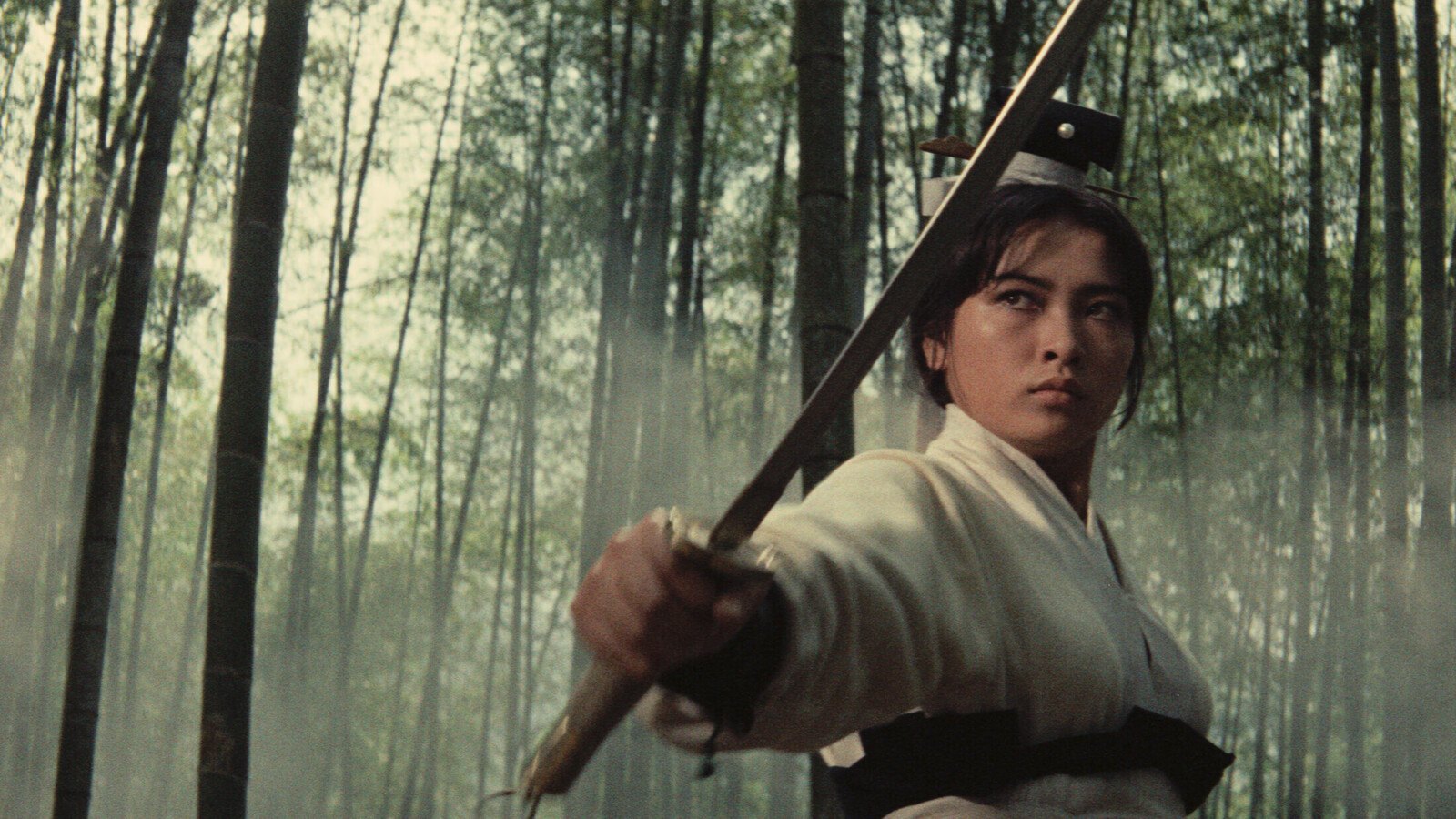Dotyk zen
Przygotuj sprzęt i wciśnij play by uruchomić doświadczenie
Pokazy w kinie
Muranów
Muranów
Dostępność online
Materiały dodatkowe
Opis filmu
Okres dynastii Ming. Gu Shengzai to ubogi, samotny nauczyciel, który żyje z matką w rozpadającym się domu w prowincjonalnym mieście. Pewnego dnia poznaje nową sąsiadkę, która właśnie wprowadziła się do zniszczonego fortu w okolicy. Piękna i tajemnicza panna Yang okazuje się nie być osobą, za którą się podaje. Tak naprawdę jest uzdolnioną wojowniczką i córką uczciwego urzędnika, który odważył się ujawnić oszustwa pewnego eunucha o imieniu Wei. Z tego też powodu Yang musi ukrywać swoją tożsamość przed szpiegami Wei, który wysłał jej śladem swoich wojowników, mających jedno zadanie – usunąć ślad po rzekomej zdradzie stanu.
Po sukcesie „Dragon Inn” King Hu zdecydował się na otwarcie własnego studia produkcyjnego i realizację najbardziej ambitnego ze swoich filmów. „Dotyk zen” powstawał cztery lata, niestety okazał się finansową porażką. Dopiero w 1975 roku został odkryty i pokazany na festiwalu w Cannes, dzięki czemu zarówno gatunek wuxia, jak i postać reżysera doczekały się uwagi i uznania zachodnich krytyków. To dzieło absolutnie wizjonerskie na wielu płaszczyznach – King Hu jako jeden z pierwszych twórców decyduje się łączyć kino sztuk walki z transcendentalną poetyką, chwytającą ducha buddyzmu zen. Nieprzystające z pozoru zestawienie zmieniło sposób myślenia o gatunku wuxia, a „Dotyk zen” stał się pionierskim dokonaniem w kinematografii Tajwanu. To rodzaj poetyckiego i filozoficznego traktatu, który później przez lata inspirował twórców na całym świecie.
tekst:
Łukasz Mańkowski
King Hu
Urodzony w Pekinie w 1932 roku, dorastał otoczony klasyczną chińską sztuką malarską i literaturą. Jako osiemnastolatek przeprowadził się do Hongkongu i zajął się tworzeniem plakatów reklamowych, po czym trafił do słynnego studia braci Shaw. Po sukcesie „Napij się ze mną”, które zrewolucjonizowało gatunek wuxia, wyjechał na Tajwan, by nakręcić entuzjastycznie przyjęty „Dragon Inn”. Kolejny film, „Dotyk zen”, powstawał ponad trzy lata i uchodzi za największe arcydzieło reżysera. Jego kolejne filmy powstawały m.in. w Korei Południowej i zaliczają się do kanonu ambitnego wuxia, ale pozostają mało znane poza Azją. Dzisiaj King Hu uchodzi za wizjonera kina akcji, który wykreował trendy do dzisiaj obecne w mainstreamie.
1966 Napij się ze mną / Da zui xia / Come Drink with me
1967 Dragon Inn / Long meh kezhan / Dragon Gate Inn
1971 Dotyk zen / Xia nu / A Touch of Zen
1973 Ying chun gez hi / The Fate of Lee Khan
1979 Deszcz w górach / Kong shan ling yu / Raining in the Mountain
1979 Legenda gór / Shan zhong zhuan qi / Legend of the Mountain
1983 Koło życia / Da lunhui / The Wheel of Life (jedna z nowel)
1993 Hua pi zhi: Yin yang fa wang / Painted Skin








